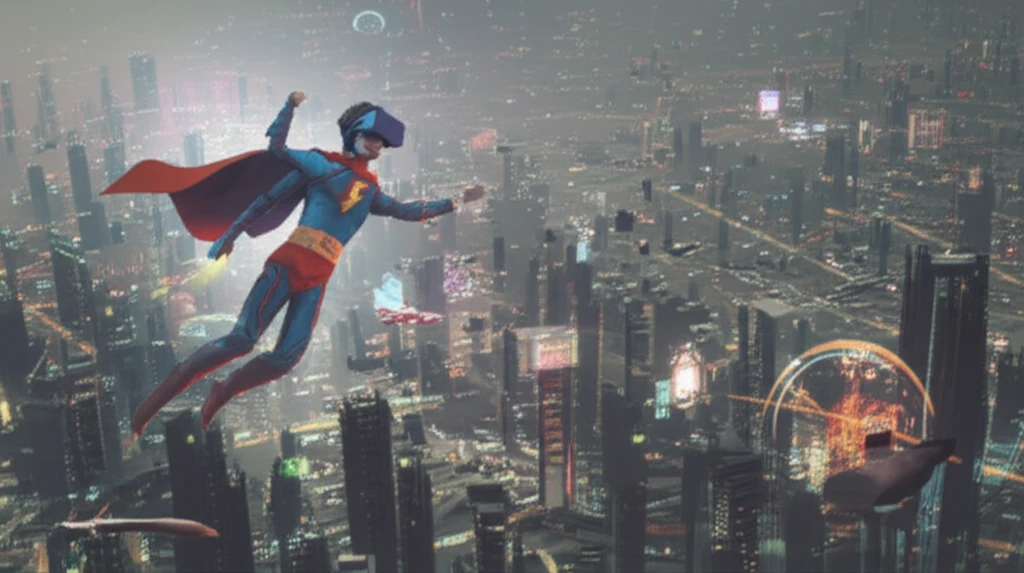
Unleash Your Inner Hero: How Virtual Reality Superpowers Boost Real-World Kindness
"New research reveals that embodying a superhero in virtual reality can significantly increase prosocial behavior, proving that virtual experiences can have a profound impact on our everyday actions."
Virtual reality (VR) is more than just a game; it's a powerful tool that can profoundly influence our perceptions and behaviors. Imagine walking across a virtual plank high above a cityscape—even though you know it's not real, your body reacts with genuine fear. VR's ability to create convincing experiences opens up exciting possibilities for therapy, training, and even enhancing our social interactions.
Recent studies have explored how embodying avatars—virtual representations of ourselves—can change our behavior. What happens when we give those avatars extraordinary abilities, like the power of flight? Can experiencing virtual superpowers translate into real-world kindness and helping behavior?
This article delves into a fascinating study that investigates the impact of virtual superpowers on prosocial behavior. Researchers explored whether simply experiencing the power of flight in VR can prime individuals to be more helpful and altruistic in their daily lives. Get ready to discover how virtual reality might just unlock your inner superhero!
Soaring to New Heights: The Science Behind Virtual Superpowers and Kindness

The study, conducted by Robin S. Rosenberg, Shawnee L. Baughman, and Jeremy N. Bailenson, employed a clever two-by-two design. Participants were divided into groups, with some experiencing the power of flight (controlling their avatar's flight with arm movements, much like Superman) and others riding as passengers in a virtual helicopter. Within these groups, participants were assigned one of two tasks: either searching for a missing diabetic child in need of insulin or touring a virtual city.
- The Power of Priming: The researchers theorize that the experience of flight may prime concepts and prototypes associated with superheroes, such as Superman, triggering a sense of responsibility and a desire to help others.
- Beyond Gaming: This research extends the findings of previous studies that show prosocial video games can lead to increased helping behavior. VR offers a more immersive and embodied experience, potentially amplifying these effects.
- Real-World Impact: The study highlights the potential of VR technology to influence behavior in the physical world, suggesting new avenues for promoting prosocial actions and attitudes.
The Future is Kind: VR as a Tool for Cultivating Empathy and Prosocial Behavior
The findings of this study open up exciting possibilities for using VR as a tool to encourage prosocial behavior and cultivate empathy. By creating immersive experiences that allow people to embody helpful and altruistic roles, we can potentially prime their brains to act more kindly and compassionately in the real world. From training simulations for emergency responders to virtual environments that foster empathy for marginalized groups, the potential applications are vast and transformative.
